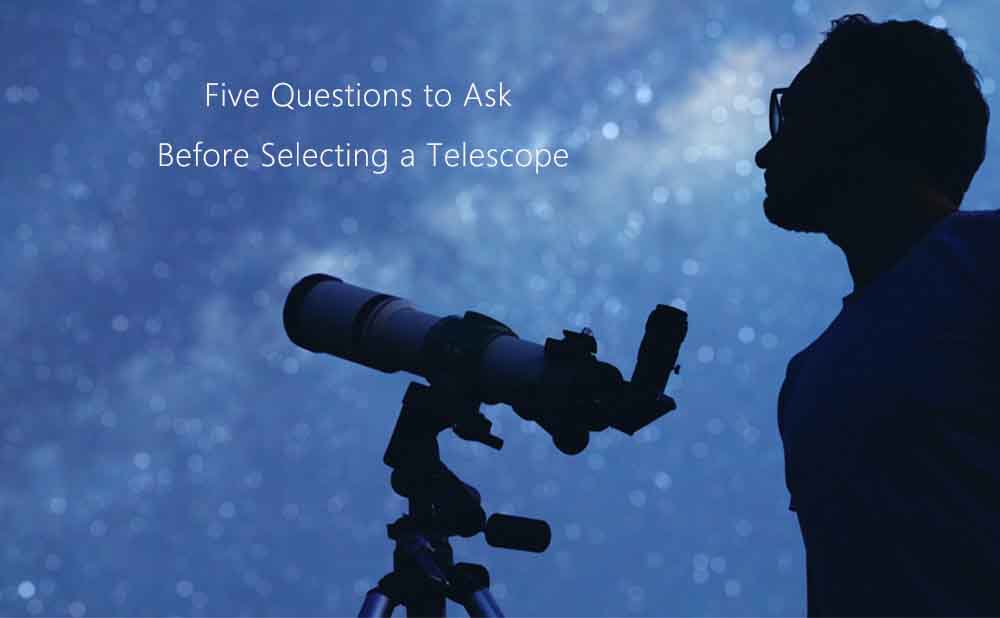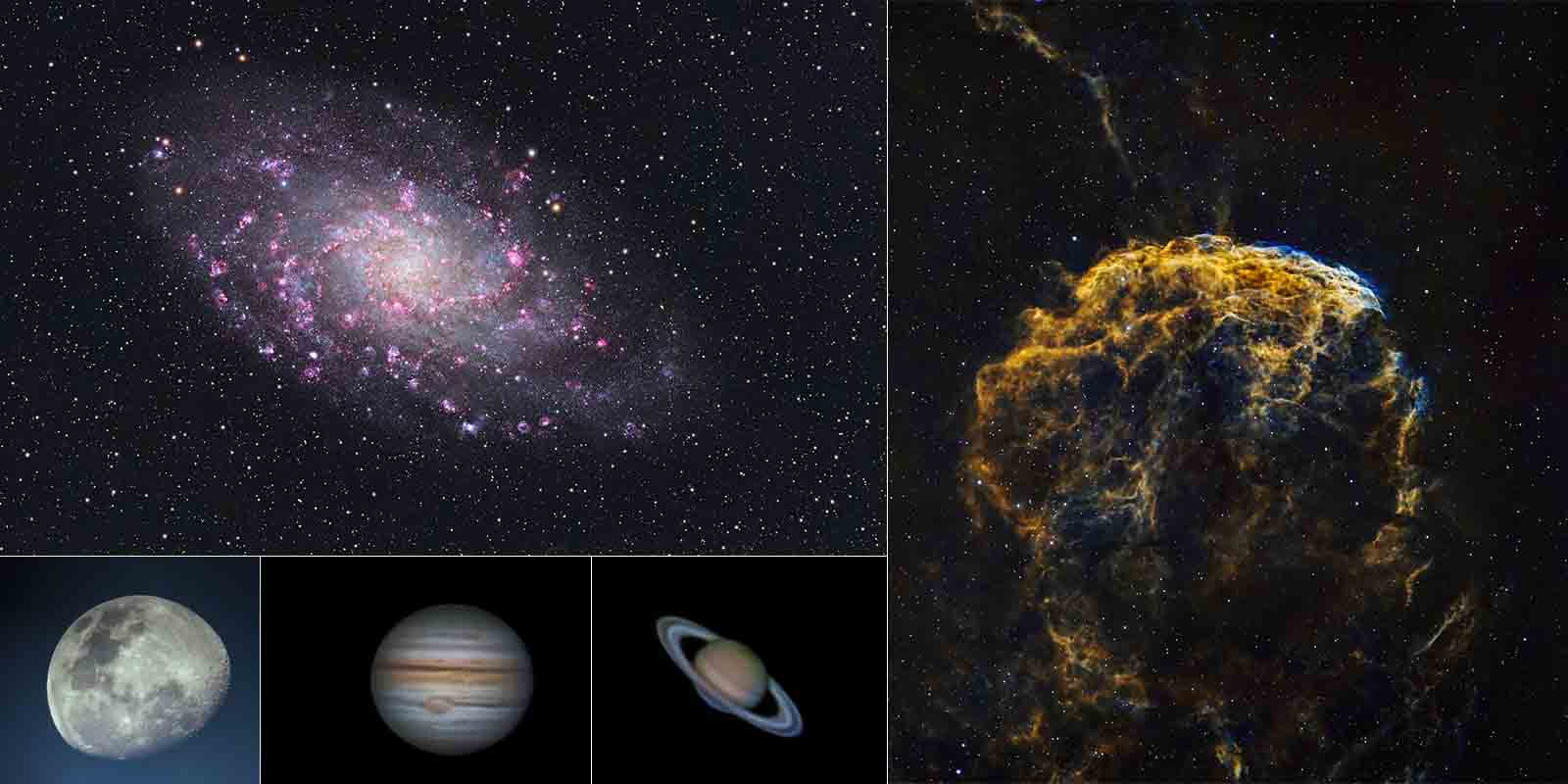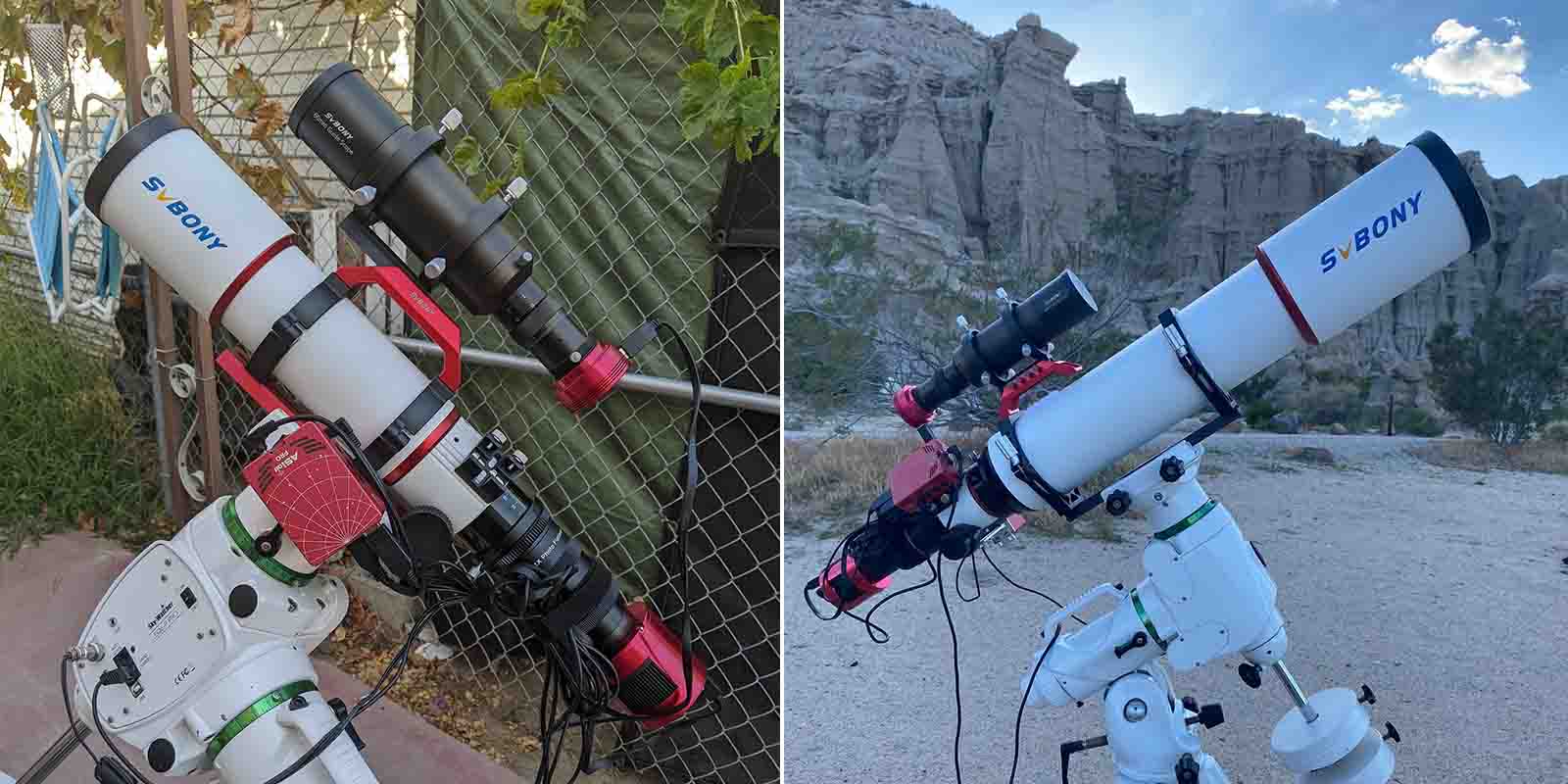Table of Contents

Five Questions to Ask Before Selecting a Telescope
Five Questions to Ask Before Selecting a Telescope
-
1. Where will I see it?
In a city or large town there are many street and building lights. The light from these lamps forms a dome of light. This dome of light affects what you see at night, creating a bright haze that blocks out fainter stars, galaxies and nebulae. City dwellers are usually limited in their ability to see the Sun, Moon, planets, binary stars and some brighter deep sky objects. Telescopes with apertures between 70mm and 130mm should suit them well.
In the countryside you are not restricted by light pollution, so any telescope will work. A telescope with a larger aperture (122mm or larger) will give you incredible views of nebulae, galaxies and star clusters.
-
2. What objects do I want to see?
Astronomy is a broad hobby that covers many areas. Amateur astronomers can help study the Sun, Moon, planets and variable stars. Amateurs can also search for novae, supernovae, comets and asteroids. Or you can do it just for the fun and love of admiring and imagining the sky. Buy a telescope that suits your interests.

-
3. What's my budget?
Telescopes range in price from $199 for a small refractor to more than $5,000 for a large catadioptric telescope. Buy what you can afford, or save for a later purchase.
4. How much am I prepared to carry?
The size and weight of a telescope that you are prepared to carry is probably the biggest issue to consider. Telescopes range in weight from about 15 lbs to well over 300 lbs. Most can be broken down into 3 parts for transport: the optical tube assembly, the telescope mount and the tripod or base. Remember, if the telescope is too heavy, you may not be able to use it at all!

-
5. How much time do you want to spend observing? More or less than an hour? Or three hours a night?
You can set up your telescope quickly for a quick look at the sky, or set aside an entire evening to enjoy the full observing experience.
How much time you want to spend will dictate which telescope design you choose. The equatorial mount instrument consists of a tripod, counterweight, optical devices, equatorial mount, electronic devices and power supply. Once set, it still must be aligned with the celestial pole.
Astrophotography takes more effort than visual observation. Of course, you can observe with any instrument for a short or long period of time, but if you just want to take a quick look at the sky, working with a huge setup can sometimes be very unpleasant.
Conclusion
Before you purchase a telescope, we recommend attending a local astronomy club meeting; they are a very good source of information, and members will let you view through their telescopes. Go to local astronomy events and star parties—amateur astronomers love to show the sky to the public!
Go out and see the beauty of the night sky. Enjoy an astronomical tour!


There are no customer reviews yet . Leave a Reply !